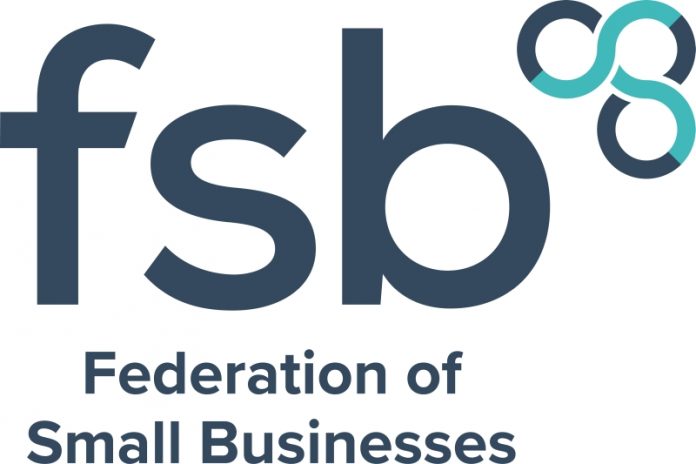Representatives of British business reacted with emotions ranging from despair to resignation today, in response to the government’s reduction in protection from rocketing energy bills.
Treasury minister James Cartlidge last night detailed cuts in the second phase of bill discounts offered to firms, charities and public organisations. He extended the present six months of support, to a full twelve months starting this April.
The new arrangements amount to discounts equivalent to up to £6.97 per MWh off retail prices of gas, and £ 19.61 per MWh off electricity costs. All discounts will be applied at source.
The minister confirmed the revised scheme is budgeted to cost £5.5 billion over its twelve months, against £18 billion already spent in the first phase’s six months.
The Federation of Small Businesses was quick to condemn the Treasury’s new measures.
National chair Martin McTague said: “(The government’s) decision to all but eliminate help through the Energy Bill Relief Scheme (EBRS) is a huge disappointment for small businesses. Many small firms will not be able to survive on the pennies provided through the new version of the scheme.
“Higher bills, on the government”
“This is so out of touch”, McTague continued. ”Two pence off a kWh of electricity and half a pence off gas is totally insignificant for small businesses, despite costing billions to the taxpayer. The Government will inevitably have to come back”, the FSB spokesperson went on.
“The current EBRS scheme provides certainty for a small business owner over their rates, and has made a material difference to the survival of many small businesses. The replacement scheme will do neither”, McTague charged.
The original EBRS scheme had suppressed inflation by 5% points, but its lower rates would cancel that effect, the FSB man added.
“Slashing support will drive higher inflation, just as we enter a recession”, McTague asserted.
Recent FSB research revealed a quarter of small firms planning to close, downsize, or else radically change their business model, after the government reduces energy support after March 2023, the lobbyist added.
““What’s certain from this catastrophic move is there’ll be a cliff edge after March, McTague went on.
“The small fish and chip around the corner, your local pub, and the family-run independent laundrette – all will see much higher bills. That’s on the Government”.
Representing the biggest employers, Tom Thackray, director for decarbonisation policy at the Confederation of British Industry voiced a resigned welcome to the Treasury’s extra help.
“The extension to the scheme will provide respite for many firms at the start of the year and help them plan ahead for the next 12 months with more certainty” said the CBI spokesperson.
“It’s unrealistic to think the scheme could stay affordable in its current form, but some firms will undoubtedly still find the going hard. The government has done much to protect businesses through the energy crisis. It must remain open, flexible and pragmatic in its approach to volatile wholesale energy markets as the year unfolds.
“Heavy energy users and those exposed to global trade are among some of the most impacted in the current crisis, so the additional support for these firms is a particularly welcome step”, the CBI man concluded.
Intensive energy users in some fields of manufacturing will continue to receive heightened levels of support. But the aid will apply only to 70% of volumes consumed, the minister specified. For gas, the unit discount will be up to £40 per MWh from April, and £89.10 per MWh for electricity.
The Energy Intensive Users Group embraces trade associations for UK makers of materials such as cement and steel, ceramics, glass and fertilizers.
The body welcomed extending support as far as 2024, but pointed out Whitehall’s generosity to UK high consumers lagged behind aid offered by governments in Berlin, Paris or Rome.
“Competitive disadvantage”
The UK lobby group cited the German government‘s guarantee of net prices of €70/MWh for gas and €130/MWh for electricity, both payable on 70% of current energy consumption relative to 2021. And maximum discounts do not feature in the German scheme.
US energy prices too remain far below European prices, the EIUG added.
“Although welcome, the level of relief the UK Government proposes to provide from April still puts UK energy-intensive industries at a competitive disadvantage internationally”, said EIUG director Arjan Geveke.
For supplier nPower Business Solutions, its commercial director Anthony Ainsworth called for more government help for energy efficiency for commercial consumers.
“While a complete cliff edge has been avoided…. it is more important than ever that they also have the support to reduce consumption through greater energy efficiency”, Ainsworth commented.
“This is where we really need additional government policy, to help businesses proactively invest in measures to help protect them from energy risk and any future volatility. We are working with our customers to help them do this, but any further incentives from government would have a hugely positive impact, both in terms of reducing energy demand and lowering carbon emissions.”




